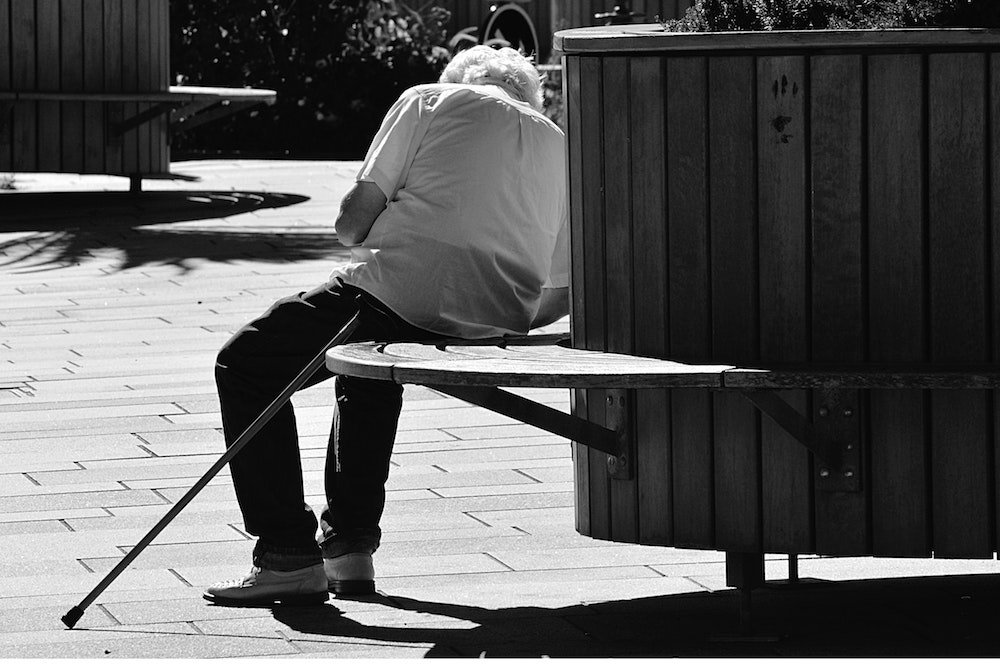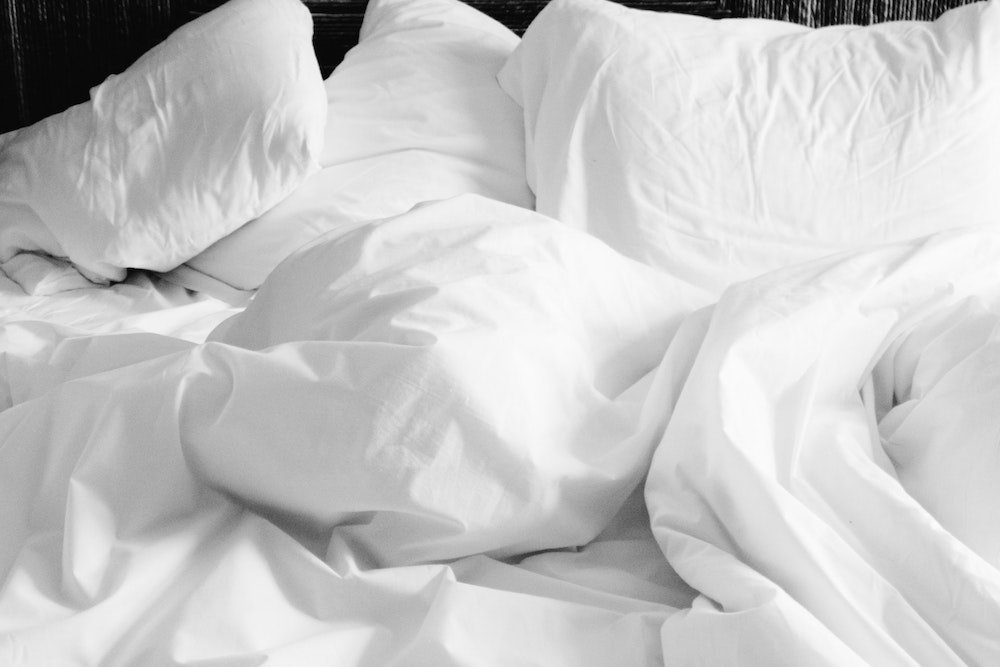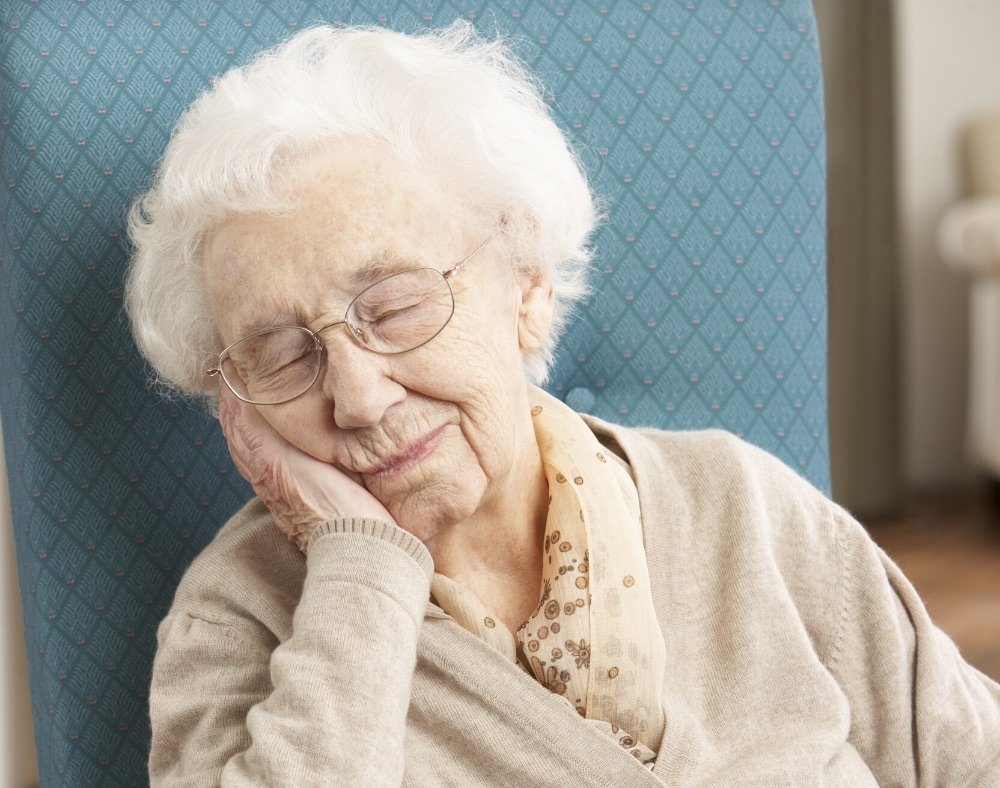Researches show that dementia and sleep are actually quite closely connected to each other.
Also, those with dementia usually develop bad sleeping habits which we need to take into consideration as soon as possible.
Sleep deprivation is known to have profound consequences on a person’s health.
This can include tiredness and grumpiness as well as the risk of serious medical conditions like heart disease, diabetes, obesity, and shorter life span among many others.
Over the years, there also seems to be a connection between dementia and sleep.
This is even though scientists and researchers cannot conclusively explain how dementia affects a person’s sleep.
Studies indicate that about 40% of people who have dementia experience sleep disturbances. For some individuals, their internal “biological clock” may be damaged, affecting their sleep.
Another logical explanation is that the parts of the brain that control whether a person stays awake or not may be damaged by the disease, which results in disturbing sleep patterns.
Before experts can give conclusive explanations, let us look at different aspects of sleep risk and dementia.
Sleep Problems That Dementia People May Face

There is a wide array of sleep issues that people with dementia may experience over the course of the illness, such as:
Oversleeping
In as much as we are encouraged to enjoy quality sleep all night, people with dementia may end up oversleeping.
This is where a person spends most of their time in bed during the day and at night. Sleeping a lot is usually common in the later stages of the illness.
As the disease progresses, brain damage also becomes more extensive, making a person become frailer and weaker over time.
This typically results in a person with dementia to sleep more as their symptoms also become more severe.
Some medication that an individual may be taking like antihistamines, antidepressants, and antipsychotics can contribute to excessive sleepiness.
Light Sleep Disorders
These are disorders that are also known as (RDB) rapid eye movement sleep behavior disorder. They make individuals act out their dreams by talking or moving in their sleep.
Sleep Disordered Breathing
This is where a person has difficulties breathing while sleeping.
It may be as a result of obstructions in the airway, which makes an individual work harder to breathe normally. At times, this is also referred to as sleep apnoea.
It is considered to be one of the risk factors when it comes to dementia and sleep.
This is because disordered breathing can damage the brain because the levels of carbon dioxide and oxygen change when a person has challenges while breathing.
Most of the time, this can also change how blood flows to the brain.
Difficulties Falling Asleep
Many people with dementia often have trouble falling asleep. A person may be in bed wanting to sleep, but it will not happen.
Counting sheep and drinking chamomile tea may not offer the solution that the person needs.
This makes the affected person want to wander off into the darkness or start yelling or calling the names of their caregivers.
Hypnagogic Hallucinations
These are imagined sensations that a person ends up thinking are real. They are also known as sleep hallucinations that happen when a person is falling asleep.
The hallucinations can appear in different forms, whether vision, taste, smell, or sound. Research about this is still ongoing as the hallucinations continue to fascinate scientists, philosophers, and writers.
Circadian Rhythm Sleep Disorders
These are characterized by normal sleep patterns that usually happen at random times during the day. These are very common when a person is growing older.
It usually happens because of reduced exposure to natural light, a decrease in physical activity, as well as changes in circadian rhythms that come with aging.
Natural Medications to Help People Sleep
Factors that May Cause Sleep Problems in People with Dementia

Several factors besides brain damage may be the cause of sleep issues worth mentioning when talking about dementia and sleep. Some of these include but are not limited to:
1. Restless leg syndrome
This is a disorder that brings about unpleasant “tingling” or “crawling” feeling on the legs which makes a person want to move them all the time
2. Depression
Depression is very common with people who have dementia, and it may end up affecting how they sleep. In most cases, only a professional can give a positive diagnosis of depression in adults because this is often confused with Alzheimer’s disease.
The two conditions share symptoms like apathy, isolation, impaired thinking, social withdrawal, loss of interest in hobbies, and activities amongst others.
Once depression has been positively diagnosed, treatment can improve quality of life significantly.
Treating Sleep Problems

There are two main approaches when it comes to treating sleep issues in people who have dementia.
One of these has a lot to do with lifestyle changes that can improve sleep quality.
Some of the solutions to these may include:
1. Regular sleep regimes
Encouraging a person who has dementia to stick to regular meal times as well and going to bed and waking up times can help them enjoy their sleep more.
This way, they will not have to deal with too many dire consequences of dementia and sleep.
2. Exercise

Exercise is a recommended treatment method because it gets the body moving; thus, helps the organs in the body to function as they should.
Because people who have dementia may not be able to work out vigorously, caregivers must identify light exercises that the individuals under their care can handle with ease.
Moderate amounts of walking can do the trick. Night-time stretching may also be helpful.
3. Diet

It is vital for people who have dementia to eat well-balanced food to get the nutrients the body needs to boost immunity. Avoid processed foods and stick to organic vegetables, fruits, nuts, complex carbs, and proteins.
A nutritionist can offer advice on the best foods that the individual with dementia should eat. It also helps to avoid alcohol and cigarettes.
4. Limit sleep disruptions

Sleep interruptions, whether caused by a noisy neighborhood or a snoring partner, can end up harming brain health.
Persons who experience poor restless sleep have a higher risk of cognitive decline compared to the ones who sleep well throughout the night.
Individuals who experience fragmented sleep can use blackout curtains or a white noise machine to help them sleep well throughout the night.
5. Plan more active days

Boredom during the day is one of the reasons why an individual may want to nap more.
It is advisable to plan more active days filled with activities that the seniors love. This way, they get more tired at night, making it easier to fall and stay asleep.
6. Creating a safe and comfortable sleeping space

Modifying a person’s sleeping environment to make it more welcoming, safe and comfortable can help an individual enjoy quality shut-eye at night.
This is where you can do things like check on temperatures, use nightlights, clean and soft bedding.
Also, remove clutter and use motion and door sensors for the ideal sleep environment.
7. Ensuring exposure to bright light in the morning

Furthermore, persons with dementia can also try light therapy.
Exposing seniors to natural light often can help to realign their circadian rhythm to reduce the effects of some sleep disorders.
Studies also show that light therapy helps to enhance sleep patterns for people with dementia.
8. Music intervention

The right type of music can also help a person fall asleep when they are having difficulties with this.
Ideally, it should be something with soft beats like Mozart and other classical tunes. Loud music with fast beats may not offer the desired results.
An individual can also try playing a musical instrument to drive them to sleep.
The other option available when a person wants to deal with sleep issues is the use of medications and other apparatus.
Note that a person should only consider this when they have tried the non-medical route without any success.
Examples of such include:
1. Using CPAP (continuous positive airway pressure) – This is a machine that helps to reduce the effects of sleep apnea.
2. Some medications like benzodiazepines and tricyclic antidepressants can also improve sleep.
It is always best for the person with dementia to consult a doctor before taking any type of medication to be on the safe side. Some drugs may have a negative effect when it comes to dementia and sleep.
3. Doctors may also prescribe melatonin hormone that can maintain regular sleep-wake cycles.
4. Treating any pains that a person may be having can also work well for a person who wants to sleep better.
5. A person who wakes up at night should not be encouraged to watch TV, listen to loud music, or be over-active during the wakefulness periods.
This will only encourage them to stay awake instead of going back to bed
Closing Thoughts
Lack of enough quality sleep in people who have dementia can negatively affect the physical and emotional health of a person who has dementia.
This may end up worsening cognitive symptoms, ultimately reducing the quality of life of the person with the disease as well as the people around them.
When a person is having problems with dementia and sleep, it is important to try and get to the bottom of the issue.
This is by finding out what is causing these issues to administer the proper treatment that will help a person lead a more fulfilling and satisfying life even when they are ill.













